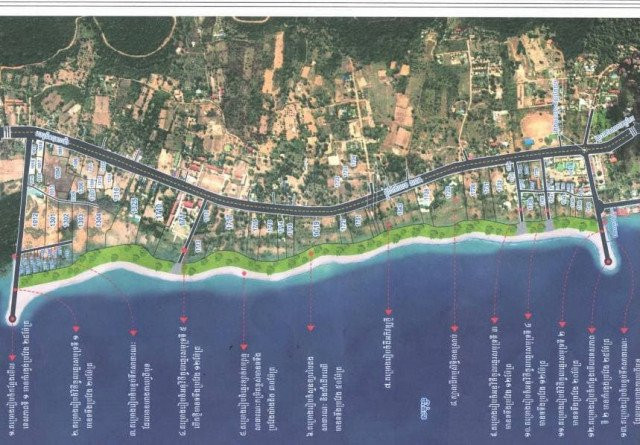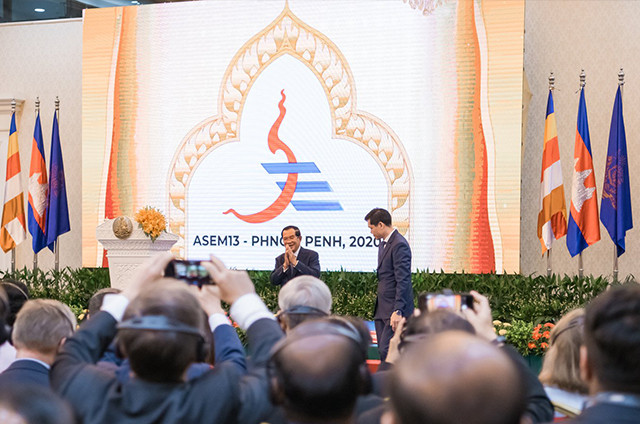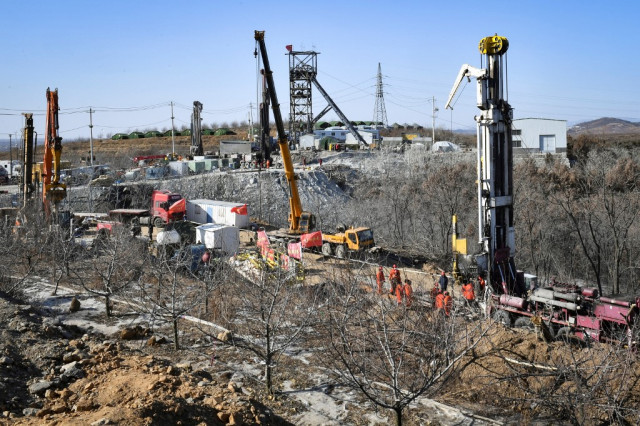Kep Provincial Administration Under Fire for Beach Expansion Project

- By Choeun Sreynoy
- and Teng Yalirozy
- January 18, 2022 7:26 PM
Governor of Kep, Som Piseth, has touted the project’s potential for more parks, but critics have called for more transparency in terms of the impact on both tourism and the environment
PHNOM PENH--The Kep Provincial Administration has defended its decision to fill in 2,700 meters of sea to expand the beach, claiming the expansion is for the public’s own good.
On Aug. 18, 2021, the National Committee for Coastal Management and Development gave the green light to fill in 2,700 meters of coastline from the Kep Crab Market to the mangrove forests and so far, the project—which aims to extend the width of the beach by 30 meters in Kep City’s Thmey Village—is 90 percent complete.
“We will leave the space to be used for projects to attract tourism by creating public parks. The area is also used when there are any provincial events,” said Kep Provincial Governor Som Piseth, adding that the expanded beach will be owned by the provincial administration.
“After filling the coast with soil to expand the beach, the hard title will be issued for the provincial administration to use, meaning that it is not private property,” Piseth added.
The soil used to fill the 2,700-meter-long beach was taken from the Phnom Voar and Phnom Preah areas.
Khay Chenda, who has worked in Kep Province’s tourism sector for some 20 years, condemned the local authorities’ decision, arguing that the mountains from where the government is taking soil are part of Kep Province’s attraction.
“Tourists visit Kep for its natural beauty, its mountains and sea,” she said. “Digging up the mountains to take its soil or stones is like throwing acid in the face of a beautiful woman, it only leaves deep pits.”
The expanded beach, she added, is unlikely to provide many benefits for the local tourism economy and simultaneously affects those working in the Phnom Voar area, who she predicted will see fewer tourists as a result of the mountain being mined for soil.
“When they dig into a mountain to get soil and stones, it is not possible to take that soil back to refill the mountain,” she added.
She asked the Kep Provincial Administration to consider taking soil from other locations far from the town and ecotourism areas so as not to affect those who make a living from tourism in the Phnom Voar area.
Heng Kimhong, head of research and advocacy at the Cambodia Youth Network, expressed his concern about the impact on the environment and seabed biodiversity resulting from too much land reclamation. Fish will continue to be scarce, further harming fishermen’s income in Kep Province, he said.
“The sea level is changing, so there is a threat if there is no proper assessment on the impact,” he said. “Moreover, many fishermen have been complaining that the fish catches are declining. So, when the sea is being continuously filled, there will be a great impact on the fish stocks.”
Kimhong said that this development should have been preceded by a publicly available environmental impact assessment that could have shown people the impact and the benefits of such large-scale land reclamation.
Governor Piseth said that the project was studied by both the Ministry of Environment and the Ministry of Mines and Energy before being implemented by the National Committee for Coastal Management and Development, but declined to give details of the assessments made.
“The Ministry of Mines and Energy, with impact assessments conducted by inter-ministerial ministries, issued a license for the provincial administration to take soil from the mountain,” he said. “Filling the sea to expand the beach does not affect any private property. We follow the old path from 2019.















